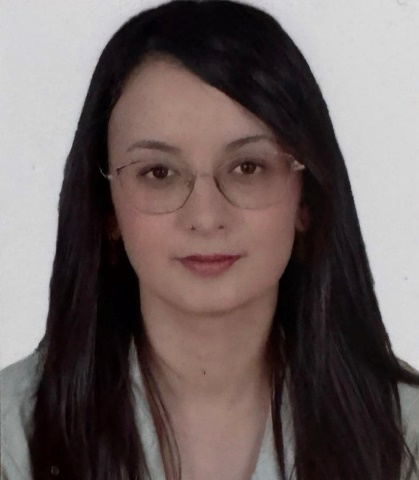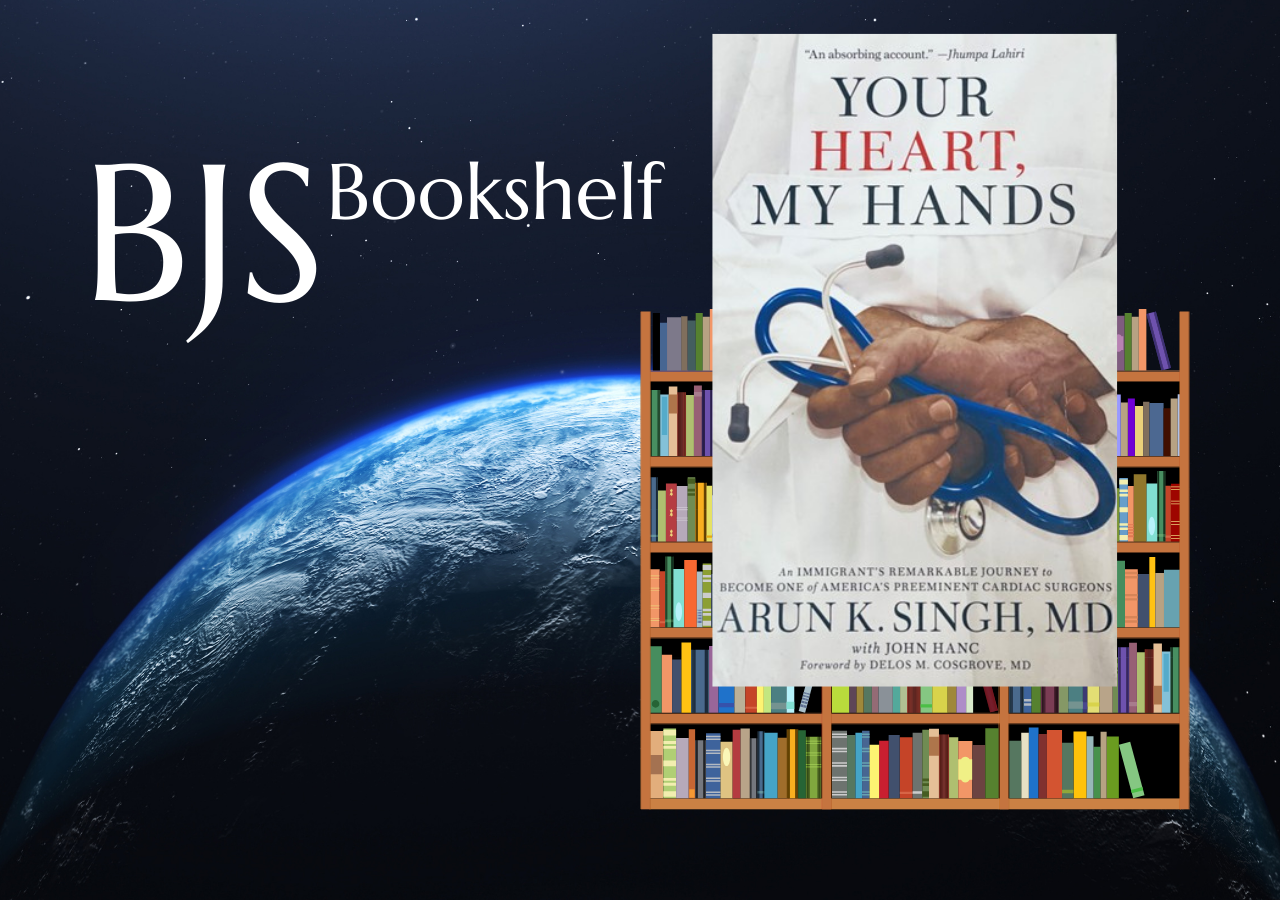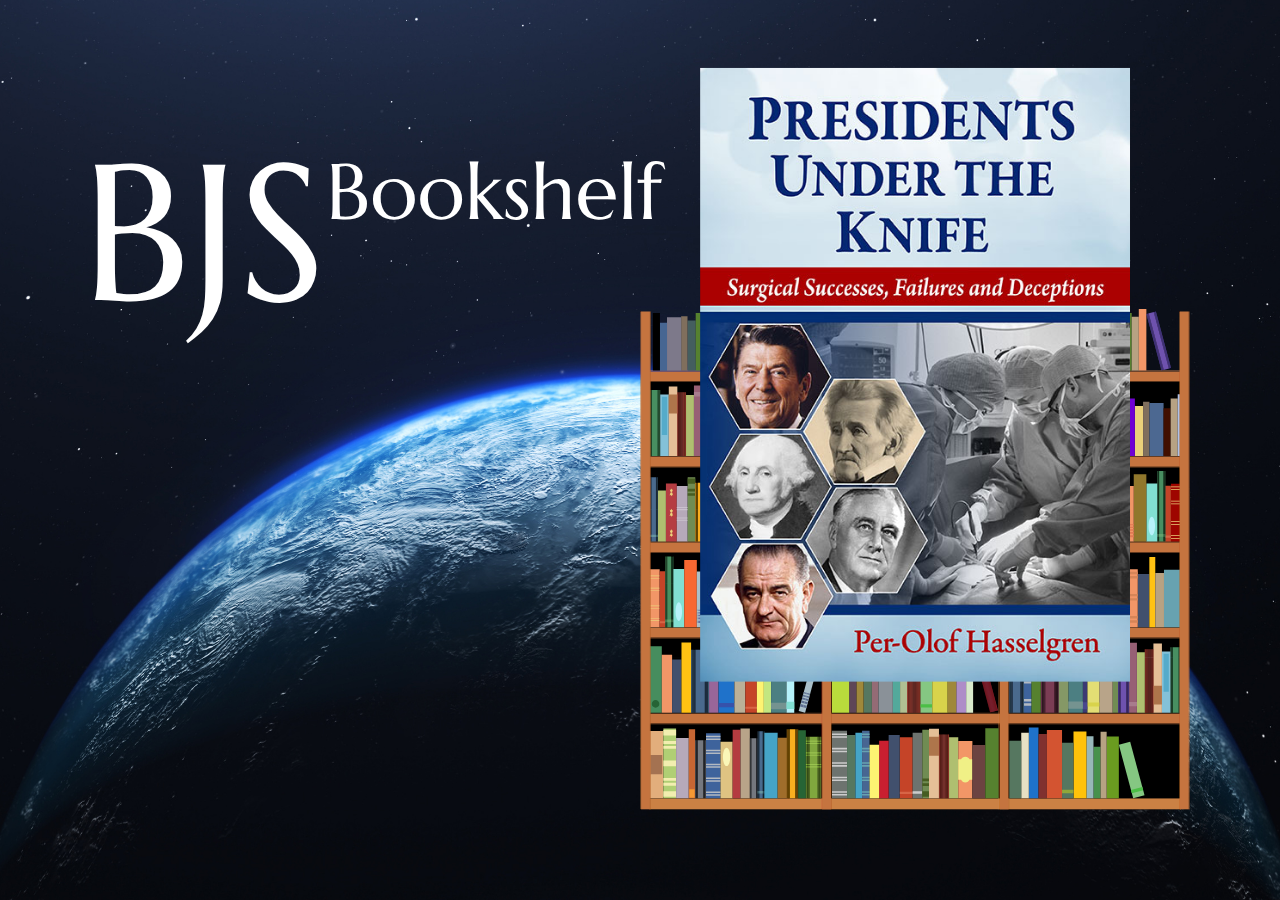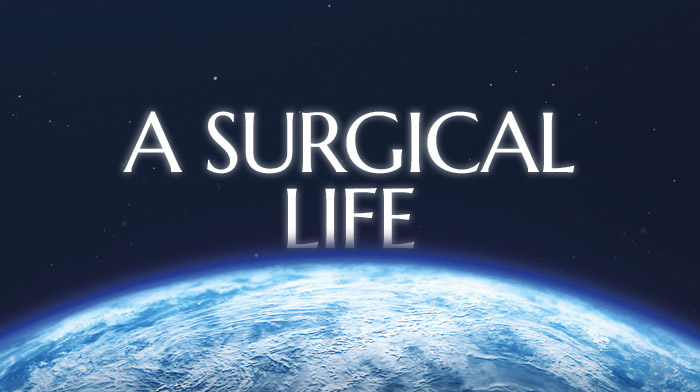BJS Academy>Surgical news>BJS Bookshelf: Atomi...
(2)
BJS Bookshelf: Atomic Habits by James Clear

Dr Wissam Benhami
Department of General Surgery, RAHMOUNI Djilali Public Hospital (Les Orangers), Faculty of Medicine, University of Algiers, Algiers, Algeria
18 September 2025
BJS Bookshelf General
(2)
Related articles

BJS Bookshelf: Your Heart, My Hands by Atul K. Singh, MD
Saarim Bari
This book traces the extraordinary life of Dr. Arun Singh, whose journey begins at grassroots level in a modest household, in a socioeconomically disadvantaged area in India, and leads to his becoming one of the most prolific Cardiothoracic Surgeons in the United States. Born with dyslexia and suffering physical injuries, Singh dropped out of school and was educated at home by his mother. During medical school, thanks to relentless pursuit and grit, Singh emerged as a bright student who defied enormous odds through ingenuity, discipline, and unwavering encouragement from his mother amid every challenge. Leaving behind a life marked by crippling setbacks and embracing his father’s distrust in his potential, Singh arrived in Massachusetts in 1967 with meagre financial means, steadfast in his claim to the American dream, embarking on an unimaginably arduous yet beautiful journey he once could only imagine. Through gripping accounts of failure, triumph, and the emotional burdens of his life, he would perform over 15,000 open-heart surgeries, lead pioneering residency programs in cardiac surgery, and mentor the next generation of surgeons. This book is more than a medical memoir; it is an immigrant’s saga of grace, grit, passion, and a burning pursuit of excellence, defying all odds.
Aspiring surgeons and professionals alike should read this not only for inspiration but for much-needed professional reflection. Singh’s journey offers invaluable takeaways in endurance, humility, and ethical surgical practice. His story resonates with any surgeon, at any stage, who wrestles with feelings of being an imposter, outwardly or inwardly. Born with a disability and burdened by physical injuries, he had every reason to give up. Yet he forged his path to master complex cardiac procedures, his resilience embodying the determination all surgeons should nurture. Despite his prolific career, Singh spoke candidly about the emotional toll of losing patients and the sense of responsibility that never fades, regardless of experience. He confronted systemic barriers and navigated cultural challenges with grace, blending seamlessly into a new world while underscoring the value of resilience and cultural humility in building trust and achieving peak outcomes. Above all, this book captures a surgeon’s devotion to patients, to the craft, and the lifelong pursuit of continued growth. It serves as both an emotional and technical guide for medical students and surgeons seeking meaning beyond the scalpel, and as a tribute to the hands that heal hearts and the hearts that sustain them.

BJS Bookshelf: Presidents Under the Knife by Per-Olof Hasselgren
Thomas E Cataldo, MD FACS FASCRS
Assistant Prof of Surgery Harvard Medical School; Program Director in Colon and Rectal Surgery; Beth Israel Deaconess Medical Center, Boston MA
__________

A surgical life by Agneta Montgomery
My surgical life What made you decide to become a surgeon? Art and design have always been a passion in life. I designed and sewed almost all my own clothes when growing up. When my twin brother was to get married, he wanted to wear a white dress suit. I tailored it for him as there was nowhere, we could find one. I have kept on tailoring abdominal walls.
Copied!
Connect

Copyright © 2026 River Valley Technologies Limited. All rights reserved.



.png)





.jpg)



